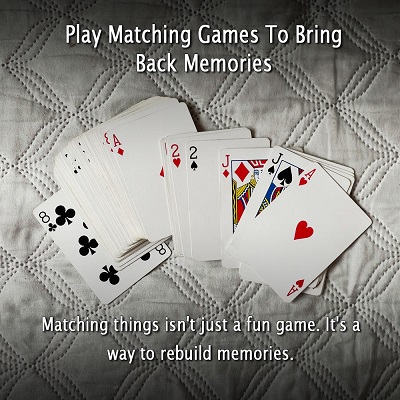 If you think about your memories, what comes to your mind first? Sad or happy ones? Sometimes it feels like our mind is filled with old-time movies, and we play them when we feel happy or sad. For those experiencing memory loss or early stages of dementia, those old-time movies get lost, sometimes never to be played again.
If you think about your memories, what comes to your mind first? Sad or happy ones? Sometimes it feels like our mind is filled with old-time movies, and we play them when we feel happy or sad. For those experiencing memory loss or early stages of dementia, those old-time movies get lost, sometimes never to be played again.
However, simple, enjoyable activities like matching games can make a huge difference in bringing back memories! Here’s how matching games work, how they can help, and how to enjoy them.
Why Matching Games?
Matching games are familiar, straightforward, and most importantly, they’re gentle on the mind. They’re not about achieving a high score or being the fastest. They’re about finding enjoyment in making connections and noticing details. For those with memory challenges, matching games can help bring a sense of calm, focus, and accomplishment.
These types of games tap into different parts of their brain that deal with memory and recognition, gently exercising their mind without stress. What’s also great about these games is they are adaptable to different stages of memory loss.
They can be as simple as matching colors, objects, or even sounds, making them accessible for everyone. For seniors who are struggling with remembering things, they can bring back familiar feelings of success, laughter, and maybe even a little friendly competition if played with family.
Types of Matching Games You Can Try
Here are some ideas for you. The beauty of these games is that they can be adjusted based on what interests the person the most.
Picture Matching
As kids, we had memory games with cards, this is the same principle. Picture matching games can be a great way to teach and boost memory recognition. Try picking images of things that are already familiar to them, like animals, flowers, or even family members.
Here’s how to play:
Choose some pictures of common objects or animals that are bright, simple, and easy to recognize. Shuffle and lay them out face down, then pick two at a time to see if they match. If they do, celebrate the win! If not, lay them face down again and choose again.
Word-to-Picture Matching
Word-to-picture matching is excellent for engaging parts of the brain that process language, recognition, and memory. This game is good for those who still enjoy reading and feel comfortable with words. It’s a bit of a brain-boosting twist, as it combines word recognition with image association.
Here’s how to play:
To start, get some pieces of paper and write down a different word on each piece (things like dog, cat, boat, house, etc.) and find matching pictures for each. Lay out both sets, and see if they can pair them up. For added fun, you could ask questions about each item as you go along, like, ‘Have you ever sailed a boat?’ or ‘What’s your favorite pet?’
Color Matching
Matching colors is a simple game and provides a chance to have fun while not having to focus too hard. It’s easy, calming, and can also be a very sensory experience.
Here’s how to play:
It’s all about matching colors. So you can either find lots of little items that can be matched up, like all the blues, or reds etc., or you can use colored cards, buttons, or blocks. If you’re using cards, shuffle them up and match the colors one by one. You can also line up items of similar colors, like a red block next to a red card and red button. Or find all the red items.
Color matching activates parts of the brain connected to visual processing, and it can also be relaxing. Just having different colors in front of you can be visually pleasing and soothing, and can even bring back memories!
Sound Matching
Here’s a great game for people who love music, and even for those who don’t, as it can be fun to make noise! Sound matching games tap into auditory memory and recognition, providing a change from visual activities.
To start, make a little collection of items that make any sort of noise, like small bells, beads or buttons in jars, musical instruments of course, or even sets of keys, you can create a sound-based matching game.
Here’s how to play:
Set up pairs of matching items, like two bells, or two sets of jingling keys. Take turns shaking or jingling each one, then have them try to remember which sound matches with what.
For seniors experiencing memory loss, these games help in more ways than one. They give them a chance to slow down and focus on something small and achievable, boosting their confidence and making them think, ‘I can still do this.’ That sense of capability is powerful! They’re also gentle, stimulating, and full of fun! All great reasons to try matching games for bringing back memories.






